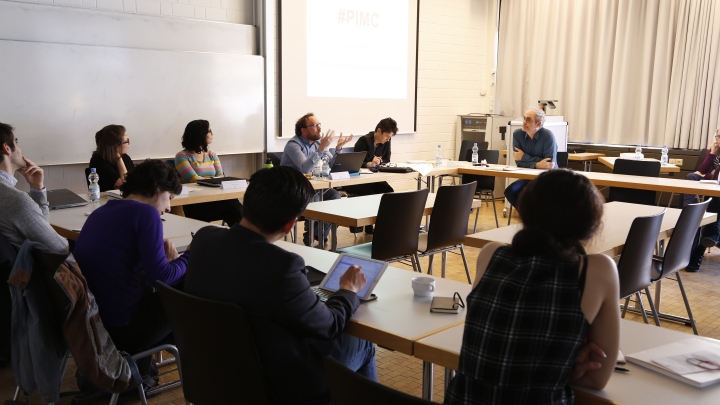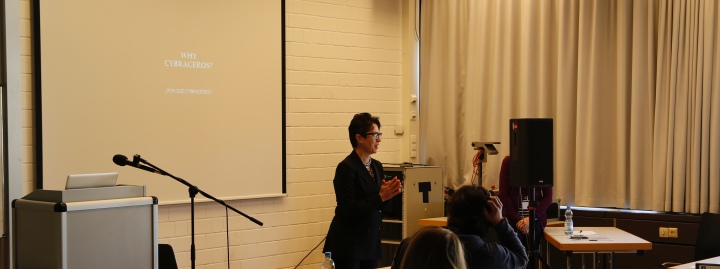The movie „Leben Verboten“ deals with the life of migrants in Germany and expresses the difficulty to stand up for elementary human rights in Germany.
In Tübingen, migrants living in the local sports centre, in cooperation with the group „Solidarity & Action: Tübingen für alle“ and the information café, have organised a panel discussion with the title „Kein Platz zum Leben“ (engl. „no space to live“). They wanted to discuss the living situation of migrants in the centre with invitees of general town’s people, as well as representation of the local authorities.
Ela Boyacos is committed to helping migrants at the information café at the sport centre. In an interview, she talks about how the discussion took place and how volunteer work with migrants can look like.
Ms Boyacos, could you describe how the event took course?
Ela Boyacos: The inhabitants of the sports centre have, together with the group „Solidarity & Action“, sent an invitation to the local authorities in order to discuss the situation at the centre together in a panel discussion. It was wonderful that women and men from for example Syria and Afghanistan raised issues and interpreters of different languages were present. The migrants spoke about their urgent needs; not knowing when they will leave the centre again, among other things. The event was very well frequented and received.
Did the event help to improve the living situation of migrants?
Ela Boyacos: To my knowledge, it didn’t within the centre. But, just recently, some families with pregnant women and children under one year of age were transferred to a different accommodation.
Could you tell us about your experience as far as volunteers are concerned who want to help improve the living situation of migrants?
Ela Boyacos: It’s important to talk to each other and learn from each other. A lot of different perspectives come together. Our perspective is surely different from those of the migrants. We have to learn from other people what it means to support each other – and what we can accomplish when we organise each other.
What experience have you made while working with migrants? What should we take into account?
Ela Boyacos: These people are victims of war who did not want to flee. But they are self-determined people who want to lead an independent life. If you for example offer spare time activities that aren’t frequented, you shouldn’t be disappointed. You should openly ask them: What can I do in order to help? What exactly is it that you need and can I give it to you? That’s the task at hand. Not for the migrants but together with them. And that of course also on a political level.



 Inputs:
Inputs: